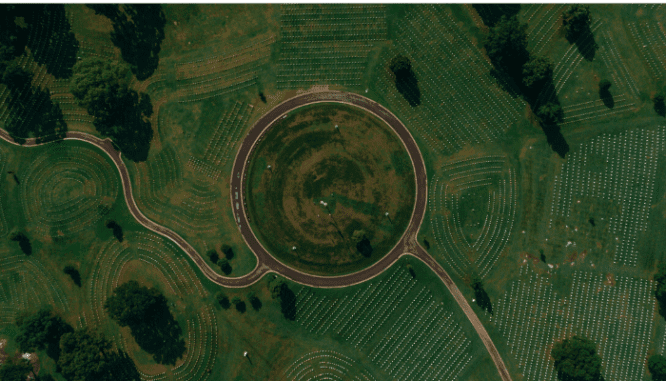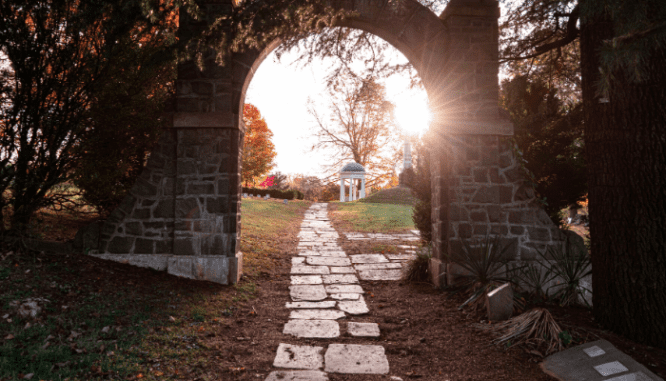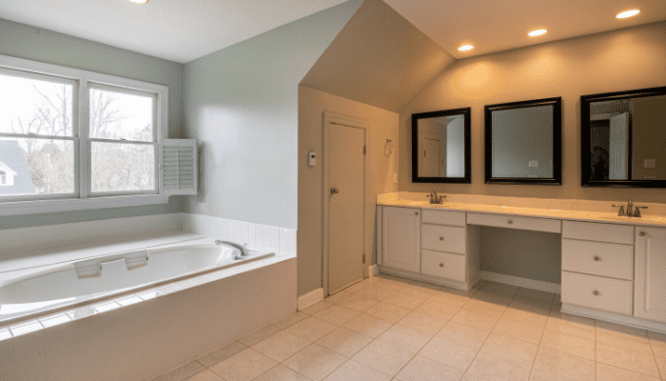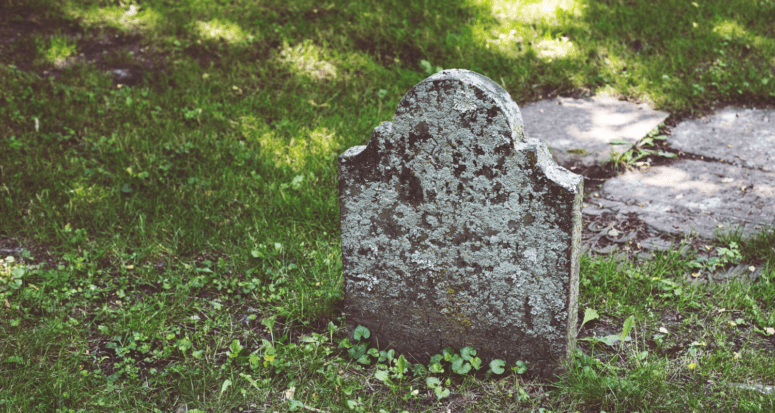I Live Next to a Cemetery. Will My House Sell for Less? Exploring the Impact of Property Value Next to Cemetery
- Published on
- 5 min read
-
Valerie Kalfrin Contributing AuthorCloseValerie Kalfrin Contributing Author
Valerie Kalfrin is a multiple award-winning journalist, film and fiction fan, and creative storyteller with a knack for detailed, engaging stories.
“People have never asked me, ‘Put me next to the cemetery,’” says Bryan Kasprisin, a top-selling agent in Joliet, Illinois. Nevertheless, he has sold several homes near cemeteries without a problem. And studies show that — when evaluating property value next to a cemetery — in general you’re not going to see a negative impact.
Some homes in Ohio with a cemetery view sold for about 9% more than the median home price in one suburb, one study found. Other research discovered that homes located less than 500 yards from cemeteries on average sold for about $17 more per square foot. Let’s address any apprehension you might have about selling a home near a cemetery, so that you and your agent can put buyers at ease and close a deal.

Location matters… but a cemetery might not
“Location, location, location” is more than a real estate catchphrase. Studies in The Appraisal Journal, the peer-reviewed publication of the professional association The Appraisal Institute of Chicago, Illinois, show that an ocean view and proximity to a golf course boost home values. Closeness to shopping, public transportation, and schools also tend to skew home prices higher.
Likewise, several other location-specific factors can lower prices: Highway noise, cell phone towers, oil pipelines, freight rail lines, and proximity to a registered sex offender, the Appraisal Institute says.
Although there are roughly 150,000 graveyards and cemeteries in the contiguous United States, cemeteries don’t automatically qualify as a plus or a minus when selling a house.
“A cemetery doesn’t really affect value,” said John Huston, a professional appraiser in St. Petersburg, Florida, who serves three counties and has appraised more than 3,800 properties since 1999. It’s not a health or safety consideration, such as proximity to a gas station, which Huston said he records on the Uniform Residential Appraisal Report for FHA loans because gas stations have flammable liquids.
However, value is different from price. “Value is what the market determines. Price is what someone is willing to pay,” Huston said.
Cemeteries affect price with other factors
In one study of 575 single-family home sales in the vicinity of four cemeteries in Greene County, Ohio, researchers in The Appraisal Journal found that cemeteries, in general, had no obvious effect on home prices.
The researchers looked at four samples of homes sold near different cemeteries. In one sample, homes with a view of the cemetery had higher prices — 8.8% above the average — while the homes in another sample sold for lower prices (about 10.1% below the mean).
Because the two other samples showed no effects, the researchers said that other factors could affect pricing beyond the cemetery view. In the sample where home prices were highest, for instance, the homes were newer (built from the 1990s onward), more had basements, all had central air conditioning, and a wooded area of deciduous trees provided a barrier between the homes and the cemetery. The cemetery also was well-maintained, the study said.
In the area near the cemetery where the prices dipped, almost all the homes were single-story tract houses constructed during the 1950s, none with a basement. The maintenance of the nearby cemetery “can generously be described as moderate/average,” the study said.
Although selling a home near a cemetery doesn’t require the same disclosure or care when handling “haunted” or stigmatized property (such as a home involved in a crime), researchers have continued to explore whether a cemetery impacts a home’s price.
One study reviewing homes for sale near cemeteries within 90 metropolitan areas found that those less than 50 feet away sat on the market for about 11 days longer — but sold for about $17 more per square foot.

More houses with cemeteries in the oldest cities
The East Coast and the South tend to have the most homes for sale close to cemeteries, likely because of the original American colonies and the battles of the Revolutionary War and Civil War. These areas include:
- New York
- Mississippi
- Kentucky
- Pennsylvania
- Massachusetts
- Georgia
- Tennessee
- Virginia
The San Francisco Bay Area town of Colma, California, actually leans into having a high number of cemeteries, calling itself the “City of Souls.” About 1.5 million people are buried in Colma, thanks in part to Cypress Lawn Funeral Home and Memorial Park, founded in 1892, far outnumbering the roughly 1,514 residents.
That said, if you’re afraid that no one will say boo to your listing, consider the positives associated with living near a cemetery.
- Cemeteries are green spaces where people can enjoy walking or other exercise. In the 1800s, they were the closest thing residents had to parks, author Troy Taylor said in The Chicago Tribune.
- Cemeteries usually aren’t disturbed for residential or commercial development, so homeowners living near them can be “fairly certain” they’ll have a “relatively open vista,” researchers say.
- Cemeteries are peaceful, aside from the traffic of visitors and employees. (Kasprisin occasionally comments on “quiet neighbors” if he develops a rapport with prospective buyers and senses they’ll appreciate a lighthearted comment).
Some buyers might relish the connection to history. Woodlawn Cemetery and Conservancy in the Bronx, for example, is a national historic landmark with a monument in memory of those lost aboard the Titanic, as well as the graves of civic leaders, architects, artists, and musicians such as Miles Davis, Duke Ellington, Elizabeth Cady Stanton, and Irving Berlin. Revolutionary War midnight rider Paul Revere and three signers of the Declaration of Independence are buried at the Granary Burying Ground in Boston, Massachusetts.
Literature and film fans might enjoy the proximity to Bonaventure Cemetery in Savannah, Georgia, made famous in the John Berendt novel Midnight in the Garden of Good and Evil, or St. Louis Cemetery No. 1 in New Orleans, Louisiana, built above ground and seen in the film Easy Rider.

Focus on amenities
Yet even if your home is near a cemetery with historical significance, real estate experts say not to lead with that particular fact. Potential buyers can pinpoint the location online, and it’s the agent’s job to tout what else the home has to offer.
Kasprisin recently sold a 1970s house in Joliet where the backyard was adjacent to a cemetery. He offered these tips when selling a house near a cemetery:
- Highlight the features
For this house, Kasprisin emphasized the desirable cul-de-sac, the well-designed landscaping, and the updates to the master bath. “You didn’t really focus on [that] you can see the mausoleum or the crematoria behind us. Just that this is a really good location,” he said. - Acknowledge the location
Speaking of the location, while it won’t be the first item you’ll mention, don’t downplay it, either. Be matter-of-fact about it. “It is what it is,” Kasprisin said. “It’s like a pool. Either you will [like it] or you won’t. If there’s more positive stuff there and you might, it’s my job to get you through that.” - Use levity wisely
Although you might make light of the location among friends and family, Kasprisin said he does this only when he sees the buyers are genuinely interested. Otherwise, this could be in poor taste. “When we were on the back porch, I said, ‘You know, you can sit back here and have a cocktail, and you’ll have quiet neighbors; Nobody’s going to bother you.’ But by that point, I already knew… that they’d be happy there.” - Consider a price adjustment
Kasprisin reduced the price “a little bit” on the Joliet house to make it competitive with others in the neighborhood. He likened that to selling a home adjacent to the interstate for about $400,000 that would cost about $600,000 on a quieter street, all other features being equal.
If you originally bought this house at a discount because it’s near a cemetery, then it’s likely that current buyers will expect one as well. However, “I think the nicer the house is, the more amenities, the less of a discount will be expected in the price,” Kasprisin said.
Talk with your real estate agent about how your house compares with others in your market and price range, regardless of the cemetery’s proximity. Then weigh how much the cemetery should factor into your pricing strategy. Once you don’t let your worry about the location haunt you, you might find that your home overall has a lot of buyer appeal.
Header Image Source: (Shopify Partners / Burst)

